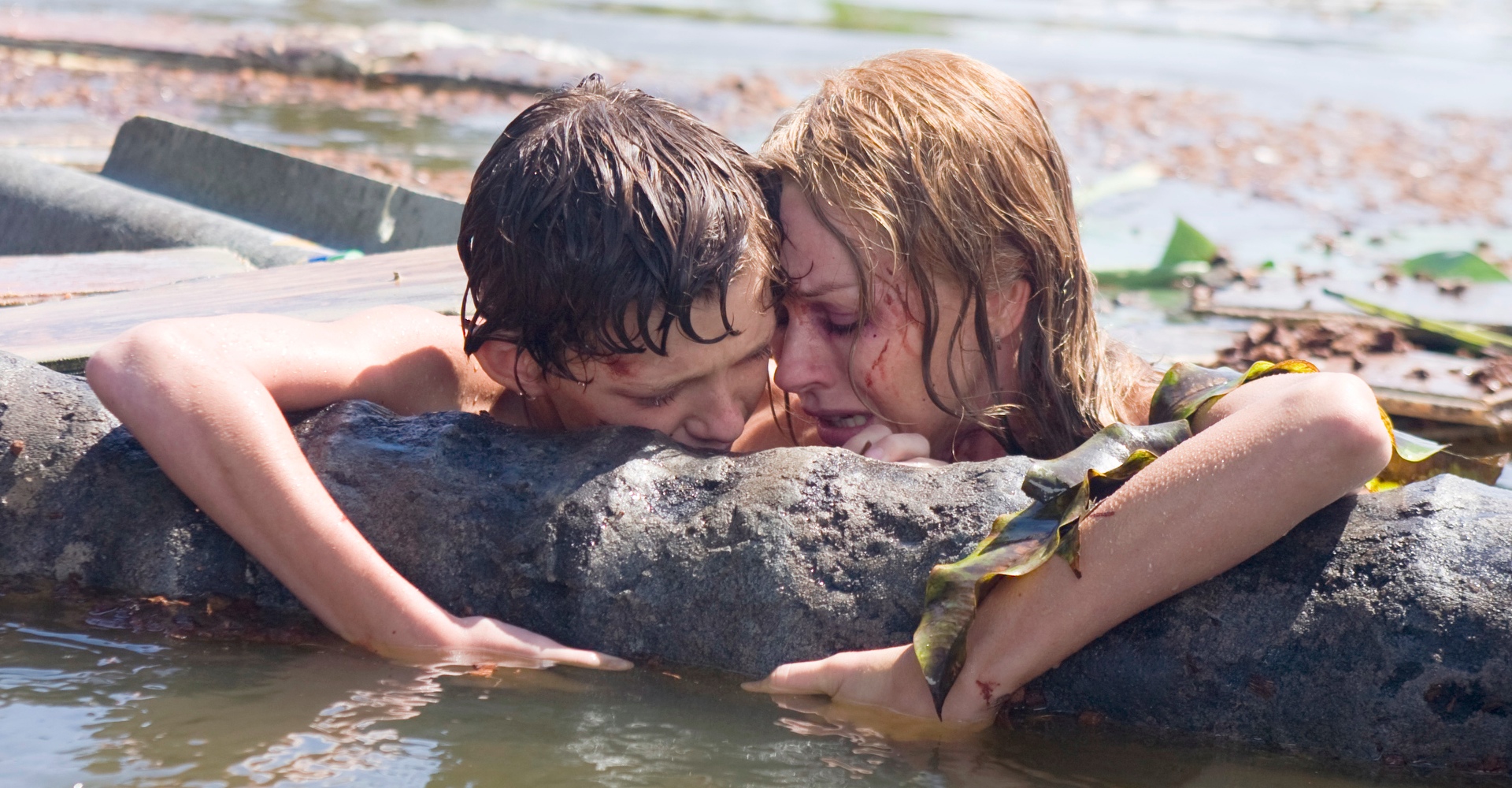
MPAA Rating: R | Rating: ★★★½
Release year: 2013
Genre: Drama, Thriller Director: Bayona
I remember hearing the news about the tsunami of 2004 over the Christmas break of my second year in college. While I sat in the comfort of my home, hundreds of thousands of people were dying in countries on the opposite side of the world. I could only watch the television, wondering if there was anything I could do to help, and knowing that I was limited in my relief efforts to praying for the victims. The scope of the disaster was overwhelming.
J.A. Bayona’s film The Impossible manages to capture the enormity of the tsunami devastation while maintaining a deep intimacy through telling the true story of one family who were vacationing on the coast of Thailand when the wave hit. The film opens with Maria (Naomi Watts) and Henry (Ewan McGregor) on the plane to Thailand with their three boys. They’re an ordinary family doing ordinary things–the boys play video games and jostle one another in their seats; Maria grips the seat, as she doesn’t like the turbulence; Henry tries to remember if he turned on their home security system before they left. They arrive at their beach resort and enjoy two days of Christmas vacation.
Then the wave hits. Much like the real life tragedy, there is no warning, no dramatic music to tell us that something is coming, no scene of the tsunami headed toward land. A change in the wind, a rush of birds flying away, and the resort is gone, shoved underwater as the sea envelopes the coast. This sequence as the wave hits is one of the most intense filmic sequences I’ve seen in a long time, and my stomach was left in knots as I felt the terror of being dragged underwater and struggling for breath.
After the wave hits, The Impossible doesn’t let up. By the end of the film, I was left an emotional wreck. Naomi Watts was nominated for an Oscar for her portrayal of Maria, but it’s the performance of Tom Holland as her eldest son, Lucas, that was most affecting and powerful for me. Maria and Lucas somehow find each other as they are dragged through the countryside by the muddy waters, beaten and battered by the rushing debris. The two embark on a journey of survival; Maria has suffered some severe wounds that are quickly becoming life-threatening, and it’s up to Lucas to keep them alive, leading them to a makeshift overcrowded hospital.
This first act of The Impossible is the most gripping and realistic; the latter act has a bit of Hollywood drama added to the mix as the family struggles to survive and reunite against impossible odds (hence the film’s title), which makes the film walk the tension between pathos and sentimentalism. My wife and I had a few conversations throughout the film about what we would do if we were separated in a similar disaster. Would we seek to find the other, or do everything to protect the children we had with us? It’s a moral dilemma that is impossible to answer unless experienced.
J.A. Bayona’s first feature film, The Orphanage, was a beautiful horror film about a mother seeking her lost son, willing to go into the darkest places to find him. The Impossible is a thematically appropriate follow-up, with another mother-and-son relationship filling the film with life in the midst of the surrounding death and devastation. When we watch such overwhelming pain and tragedy, what are we to do? The task of healing and recovery seems impossible. Yet what is impossible with man is possible with God. Let’s cry out to Him in the impossible moments, clinging to Him for healing and comfort and the miraculous.
IMDB Listing: http://www.imdb.com/title/tt1649419/